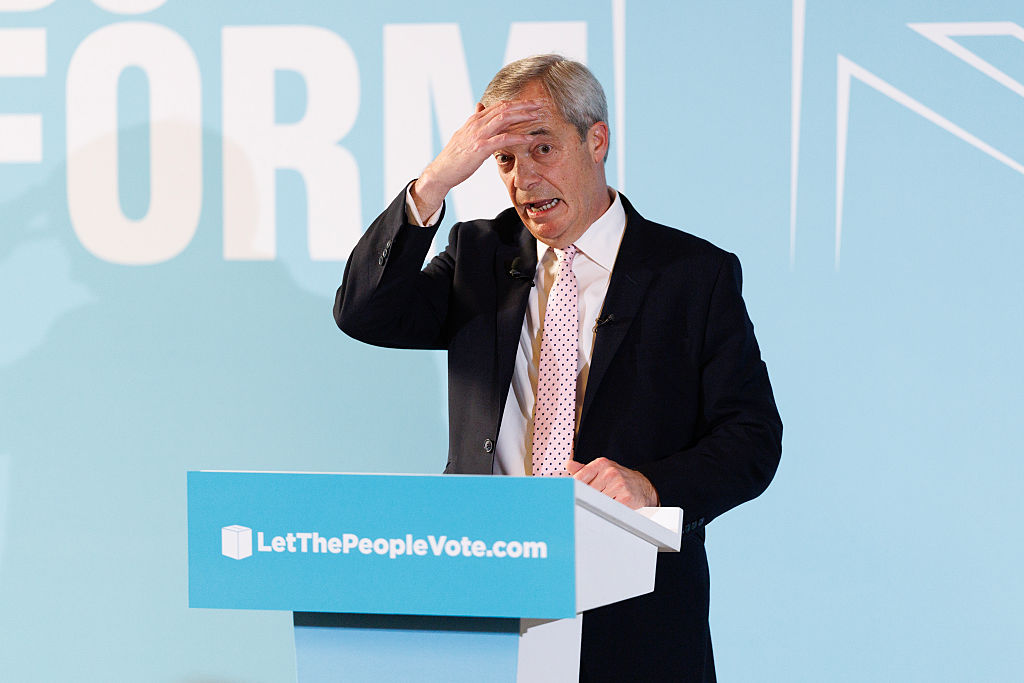A prisoner is released early and just days later attacks people. It then emerges that he was known to still be a danger to the public before he was let out. Normally at this point in the story one would be expecting ministerial resignations. But in the case of Sudesh Amman, the Streatham attacker, we are not. Why? Because the law meant that there was no alternative to him being released.
The British government is now in a mad scramble to prevent this from happening again. Emergency legislation is being rushed through parliament to stop terrorists from being automatically freed from prison halfway through their sentence.
Historically, one of the Tories’ electoral strengths has been their reputation as the party of law and order. But in recent years, they have come perilously close to losing that reputation. In the 2017 election campaign, Labour hammered the Tories with the argument that police cuts were making people less safe. The recent spike in violent crime (up by 19 percent in England and Wales in the past year) has left the Conservatives politically vulnerable.
Since he became prime minister, Boris Johnson has tried to show that he is strong on law and order. He announced the hiring of 20,000 police officers (effectively reversing the cuts), appointed the hardline Priti Patel as home secretary and backed an end to automatic early release for violent and sexual offenders. Johnson’s strategy worked on voters. He successfully neutralized crime as an issue ahead of the election.
Johnson also benefits from the fact that he has successfully established himself in the public mind as a new type of leader, rather than the third prime minister in a decade of Tory rule. When he says it is ridiculous that terrorists are being automatically released halfway through their sentences, the reaction is not, ‘Well, you’ve had since 2010 to sort it out.’
But this won’t last for ever. If in a year’s time jihadis are still being released from jail and committing attacks then voters will want to know why the government hasn’t sorted this out.
The latest iteration of jihadism is one of the hardest public policy issues of our time and a reminder that many of Britain’s most complex debates have nothing to do with the question of our relationship with the European Union. In the aftermath of 9/11, Islamist terrorists wanted to carry out big, ‘spectacular’ strikes. This meant that once someone was radicalized there was time between that moment and their first attack. This gave the authorities a chance to track these extremists and to build a case against them.
By contrast, today’s terrorists, inspired by Islamic State, want to act as quickly as possible. This means that the police and the security services need to bring them in as soon as they can. Consequently, they can often only be charged for relatively minor offenses: Amman was convicted for the possession and distribution of extremist materials.
As a result of this there are a cadre of people in prison serving short sentences who will still be a danger to the public when they are released. The obvious answer to the problem is to make prisons better at rehabilitation. But the situation is not as simple as that.
The state of the British penal system is dire. For all the concern about Islamist fighters returning to the UK from abroad, the last two terrorist attacks have been carried out by those who have served time in prisons here. But it would be naive to think that even if Britain’s prison system was much improved the majority of these people would pose no risk by the end of their sentences.
How can the UK government protect the public in these circumstances? There are many ideas circulating in Whitehall. Some think that moving prisons and offender management back into the Home Office would help. The argument goes that the Home Office, with its focus on security, is better suited to handling this issue than the Ministry of Justice, which threw up all sorts of institutional objections to separation centers for the worst jihadis before they were introduced to certain prisons in 2017.
Aside from this proposed change to the machinery of government, one option is to simply dramatically increase the tariff for all terror offenses. But it is hardly credible to make the distribution of jihadi materials a crime punishable by a life sentence. Another option would be to create a version of the sectioning power afforded under the Mental Health Act — which allows people to be detained if they are a threat to themselves or to others — for terrorists.
But treating terrorists as if they are mentally ill is problematic since it understates the role that ideology has played in radicalizing them. There is also an inherent risk in a scenario in which the state decides that holding certain views makes you insane. But at the same time, it is hard to think that someone who yearns for martyrdom above all else is of sound mind.
If such an approach was tried, it would undoubtedly be challenged in the courts. This government, though, appears quite content to take on human rights lawyers and the like. It believes, as with its court battles over Brexit, that these fights demonstrate that the government is trying to deliver what the voters want. The public, with some justification, can’t understand how we have reached a situation in which someone convicted of terrorism offenses has to be automatically released halfway through their sentence, despite a widespread belief that they were a danger. Indeed, Amman’s ability to stab two people despite being under close surveillance shows that monitoring cannot be a substitute for incarceration.
The challenge of terrorism and rapid radicalization will, sadly, continue to be a feature of this decade. The government knows that if it can’t fix this issue it will be failing in its duty to protect the public. A government that falls short on that front rarely lasts long.
This article was originally published in The Spectator’s UK magazine. Subscribe to the US edition here.


























